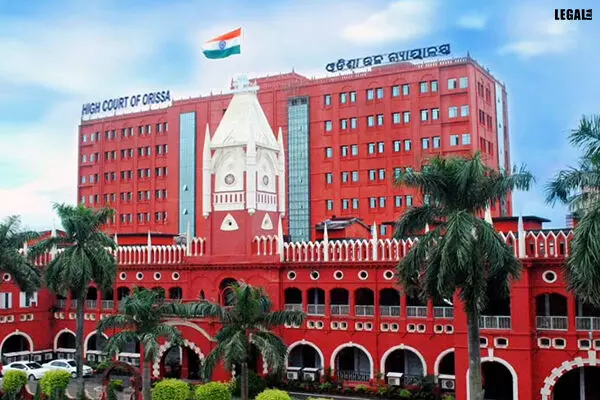- Home
- News
- Articles+
- Aerospace
- Artificial Intelligence
- Agriculture
- Alternate Dispute Resolution
- Arbitration & Mediation
- Banking and Finance
- Bankruptcy
- Book Review
- Bribery & Corruption
- Commercial Litigation
- Competition Law
- Conference Reports
- Consumer Products
- Contract
- Corporate Governance
- Corporate Law
- Covid-19
- Cryptocurrency
- Cybersecurity
- Data Protection
- Defence
- Digital Economy
- E-commerce
- Employment Law
- Energy and Natural Resources
- Entertainment and Sports Law
- Environmental Law
- Environmental, Social, and Governance
- Foreign Direct Investment
- Food and Beverage
- Gaming
- Health Care
- IBC Diaries
- In Focus
- Inclusion & Diversity
- Insurance Law
- Intellectual Property
- International Law
- IP & Tech Era
- Know the Law
- Labour Laws
- Law & Policy and Regulation
- Litigation
- Litigation Funding
- Manufacturing
- Mergers & Acquisitions
- NFTs
- Privacy
- Private Equity
- Project Finance
- Real Estate
- Risk and Compliance
- Student Corner
- Take On Board
- Tax
- Technology Media and Telecom
- Tributes
- Viewpoint
- Zoom In
- Law Firms
- In-House
- Rankings
- E-Magazine
- Legal Era TV
- Events
- Middle East
- Africa
- News
- Articles
- Aerospace
- Artificial Intelligence
- Agriculture
- Alternate Dispute Resolution
- Arbitration & Mediation
- Banking and Finance
- Bankruptcy
- Book Review
- Bribery & Corruption
- Commercial Litigation
- Competition Law
- Conference Reports
- Consumer Products
- Contract
- Corporate Governance
- Corporate Law
- Covid-19
- Cryptocurrency
- Cybersecurity
- Data Protection
- Defence
- Digital Economy
- E-commerce
- Employment Law
- Energy and Natural Resources
- Entertainment and Sports Law
- Environmental Law
- Environmental, Social, and Governance
- Foreign Direct Investment
- Food and Beverage
- Gaming
- Health Care
- IBC Diaries
- In Focus
- Inclusion & Diversity
- Insurance Law
- Intellectual Property
- International Law
- IP & Tech Era
- Know the Law
- Labour Laws
- Law & Policy and Regulation
- Litigation
- Litigation Funding
- Manufacturing
- Mergers & Acquisitions
- NFTs
- Privacy
- Private Equity
- Project Finance
- Real Estate
- Risk and Compliance
- Student Corner
- Take On Board
- Tax
- Technology Media and Telecom
- Tributes
- Viewpoint
- Zoom In
- Law Firms
- In-House
- Rankings
- E-Magazine
- Legal Era TV
- Events
- Middle East
- Africa
Orissa High Court cancels order blacklisting company in a case of non-payment of salary and deduction of GST

Orissa High Court cancels order blacklisting company in a case of non-payment of salary and deduction of GST
Rules that the district authorities took the decision in haste without providing the petitioner the opportunity of being heard
The Orissa High Court has quashed an order blacklisting a service provider, Mind Mart for the alleged non-payment of salary and excess deduction of the Goods and Services Tax (GST) from the salary of the data entry operators on the ground of violation of natural justice principles.
The Data Entry Operators (DEOs) had filed a complaint against the petitioner company, Mind Mart alleging non-payment of monthly remuneration by the petitioner. They also complained that excess deductions towards service tax, GST, etc were made from their salary.
Following the complaint, the collector of the district passed an order blacklisting the petitioner firm.
Thereafter, Mind Mart approached the high court contending that the order was illegal and arbitrary. It was in violation of the well-settled principles of natural justice, as no adverse order against a party could be passed without providing it the opportunity of being heard.
The petitioner alleged that it was neither involved in any such representation disposal, nor was there finality of any complaint to the law and order authority by the DEOs against the petitioner.
The bench comprising Justice Biswanath Rath held, "Assuming the collector is in possession of the report from the tehsildar, there is no material enclosing the copy of the report to the petitioner asking its response to the report. Since the decision for blacklisting the petitioner was taken by the collector without the involvement of the petitioner, the final outcome remains completely defective."
The court added, "Even though there was certain correspondence with the petitioner asking for its response, the court finds that the decision was unjust and taken in haste."



